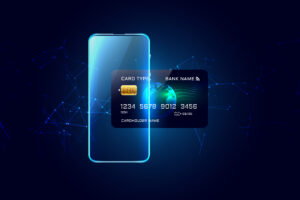
Credit cards like American Express, Visa, and MasterCard offer convenience, security, and opportunities for building credit. Image: PixaBay
Credit cards can be an invaluable tool for building credit while also offering convenience and the potential to earn rewards. However, understanding how they work and the responsibilities involved is essential for using them effectively and responsibly.
Should I Get a Credit Card?
If you’re looking to make a purchase or pay a bill, credit cards offer a convenient way to do so, often with the added benefit of rewards. They also allow you to build credit history when used responsibly. But credit cards function quite differently from debit cards, so if you’re new to credit, there are a few essential points to understand.
Key Takeaways
- Credit cards come with a credit limit, allowing you to make purchases and pay them back later.
- Carrying a balance on your card may lead to interest charges.
- It’s vital to review any promotional offers closely to understand the terms.
- Many credit cards provide rewards for purchases in the form of points, miles, or cash back.
What Is a Credit Card?
A credit card is a physical card that enables purchases, bill payments, and, depending on the card type, even cash withdrawals. Essentially, it acts as a short-term loan. Upon opening a credit card account, the card issuer grants you a credit limit—this is the maximum amount you can borrow. Every purchase you make reduces your available credit, which you must pay back, ideally by the end of each billing cycle.
Note:
Credit cards can be either secured or unsecured. Secured credit cards require a cash deposit upfront, which usually serves as the credit limit.
How Credit Cards Work
When you use a credit card, your card details are sent to the merchant’s bank, which then obtains authorization from the credit card network. The issuer verifies your information, approving or declining the transaction. Once approved, the amount is deducted from your available credit, and the merchant receives payment. At the end of the billing cycle, you’ll receive a statement listing your transactions, current balance, and payment due date.
Understanding the Grace Period
The grace period is the time between your purchase date and the payment due date on your statement. If you pay your balance in full within this period, you avoid interest charges. However, if you carry a balance, your card issuer will charge interest based on your card’s Annual Percentage Rate (APR).
Interest Rates and APR
Your card’s APR is the yearly cost of carrying a balance, which includes the interest rate and any associated fees. Most credit cards have a variable APR tied to the prime rate, meaning it can change over time. According to the Credit Card Accountability Responsibility and Disclosure (CARD) Act of 2009, credit card companies have specific restrictions on when they can raise your APR.
Warning: Missing payments for over 60 days could trigger a penalty APR as high as 30%.
Types of Credit Cards
There are many types of credit cards, with rewards cards being among the most popular. Some credit cards offer travel-related rewards, while others provide higher points for specific spending categories. There are also:
- Cash-Back Cards: Offer cash back on purchases, typically between 1% and 5%.
- Secured Cards: Ideal for those building or rebuilding credit. These require a security deposit.
- Student Cards: Tailored for students with limited credit history, focusing on building credit.
Credit Card Fees
In addition to interest, credit cards come with various fees, such as:
- Balance Transfer Fees: Charged when transferring a balance from one card to another, usually a percentage of the transferred amount.
- Over-Limit Fees: Applied if you exceed your credit limit.
- Late Fees: Charged when you miss the minimum payment deadline.
Additionally, if you miss a payment, you may lose any promotional rates on your card.
Credit Cards vs. Debit Cards
Although they look similar, credit and debit cards work very differently. When you use a credit card, you’re spending the card issuer’s money, which you must repay, possibly with interest. Debit cards, on the other hand, are linked to your bank account, with funds being deducted directly upon purchase. Here are a few key differences:
- Fraud Protection: Credit cards generally offer better fraud protection, with a $0 liability guarantee for unauthorized charges.
- Credit Score Impact: Debit cards do not affect your credit score, while credit cards do. Timely credit card payments can boost your credit, while late payments can harm it.
Pros and Cons of Credit Cards
Credit cards have several advantages:
Pros:
- Convenience: Easy to use and widely accepted.
- Security: Safer than cash, with robust fraud protection.
- Rewards: Many cards offer points, miles, or cash back.
- Credit Building: When used responsibly, they help build credit.
Cons:
- Interest and Fees: High interest rates can be costly if you carry a balance.
- Debt Risks: Credit cards can lead to debt if not managed carefully.
- Credit Score Impact: Missed payments can hurt your credit score.
How to Compare Credit Cards
When choosing a credit card, it’s essential to compare features such as:
- Regular APR for purchases
- Balance transfer and cash advance APRs
- Promotional APR terms
- Annual fees and rewards programs
If you’re interested in a travel credit card, for example, look for benefits like airport lounge access or fee credits. Weigh the rewards against any fees to decide if the card is worth it.
Why You Should Use a Credit Card
Overall, credit cards offer several benefits, especially if used responsibly. They help you build credit, which can lead to lower interest rates on future loans. They can also help with budgeting by allowing you to track and categorize expenses, and many cards offer cash back or rewards on your spending.
Perhaps the most significant benefit is fraud protection. If your card is lost or stolen, or if fraudulent charges are made, you’re protected by law from most liabilities.
Conclusion
Credit cards, when used responsibly, can be valuable financial tools. By paying your bill on time, maintaining a low balance, and avoiding unnecessary fees, you can build a strong credit history and take advantage of rewards. To avoid interest charges, aim to pay your full balance each month, and only open new credit accounts as needed.






